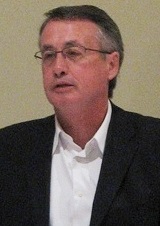Wayne Swan | |
|---|---|
 Swan in 2009 | |
| 25th National President of the Labor Party | |
| Assumed office 18 June 2018 | |
| Leader | Bill Shorten Anthony Albanese |
| Preceded by | Mark Butler |
| Deputy Prime Minister of Australia | |
| In office 24 June 2010 –27 June 2013 | |
| Prime Minister | Julia Gillard |
| Preceded by | Julia Gillard |
| Succeeded by | Anthony Albanese |
| Treasurer of Australia | |
| In office 3 December 2007 –27 June 2013 | |
| Prime Minister | Kevin Rudd Julia Gillard |
| Preceded by | Peter Costello |
| Succeeded by | Chris Bowen |
| Deputy Leader of the Labor Party | |
| In office 24 June 2010 –26 June 2013 | |
| Leader | Julia Gillard |
| Preceded by | Julia Gillard |
| Succeeded by | Anthony Albanese |
| Minister for Finance and Deregulation | |
| In office 3 September 2010 –14 September 2010 | |
| Prime Minister | Julia Gillard |
| Preceded by | Lindsay Tanner |
| Succeeded by | Penny Wong |
| Manager of Opposition Business | |
| In office 25 November 2001 –16 June 2003 | |
| Leader | Simon Crean |
| Preceded by | Bob McMullan |
| Succeeded by | Mark Latham |
| Member of the Australian Parliament for Lilley | |
| In office 3 October 1998 –11 April 2019 | |
| Preceded by | Elizabeth Grace |
| Succeeded by | Anika Wells |
| In office 13 March 1993 –2 March 1996 | |
| Preceded by | Elaine Darling |
| Succeeded by | Elizabeth Grace |
| Personal details | |
| Born | Wayne Maxwell Swan 30 June 1954 |
| Party | Labor |
| Spouse(s) | Toni Jensen (Late 1970s) Kim Swan (1984–present) |
| Children | Erinn Libbi Matthew |
| Alma mater | University of Queensland |
| Signature |  |
| Website | ALP info |
Wayne Maxwell Swan (born 30 June 1954) is an Australian politician serving as the 25th and current National President of the Labor Party since 2018,previously serving as the 14th deputy prime minister of Australia and the deputy leader of the Labor Party from 2010 to 2013,and the treasurer of Australia from 2007 to 2013.
Contents
- Early life and career
- Political career
- Parliament
- Shadow Cabinet
- Treasurer
- Deputy Prime Minister
- Resignation and retirement
- Personal collection
- Later activities
- Books
- Personal life
- See also
- References
- External links
Swan was first elected to the House of Representatives in 1993 for Lilley in Queensland,although he lost this seat in 1996. He regained the seat in 1998 and represented it until retiring in 2019. Following Labor's victory in 2007,Swan was appointed Treasurer of Australia by Prime Minister Kevin Rudd. In this position,he played a key role in Australia's response to the 2008 financial crisis and the Great Recession. In 2010,after Julia Gillard became Prime Minister,Swan was elected unopposed as Labor's deputy leader and was subsequently sworn in as Deputy Prime Minister. [1] In 2011,Swan was named Finance Minister of the Year by Euromoney magazine,joining Paul Keating as the only Australian Treasurer to have been awarded that title. [2] [3] [4] After Rudd successfully challenged Gillard for the leadership in June 2013,Swan resigned from the Cabinet. [5]






